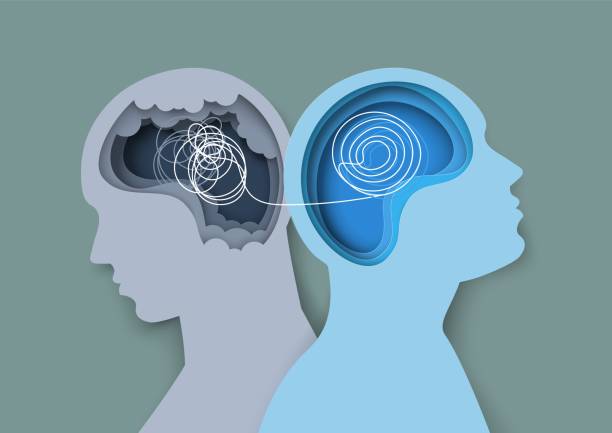Psychosocial rehabilitation (PSR) is a multidisciplinary approach that aims to restore and enhance the functional abilities of individuals with mental illnesses or disabilities. PSR has gained significant importance in recent times due to its ability to address the complex needs of individuals and promote their overall well-being. This blog will delve into the definition, history, nature, scope, methodology, benefits, and importance of PSR, making it a comprehensive guide for anyone looking to understand this field.
Meaning & Definitions- What is Psychosocial Rehabilitation?
What is a PSR? PSR is defined as a process that helps individuals with mental, emotional, or behavioral disorders to recover and regain their lost skills, abilities, and functions. It encompasses various therapeutic techniques, vocational training, and social reintegration programs designed to facilitate recovery, independence, and community participation.
According to the World Health Organization (WHO), PSR is a “multidisciplinary approach that seeks to reduce the symptoms of mental illness, improve the quality of life, and enhance the functional capacity of individuals with mental disorders.”
History & Evolution of Psycho-Social Rehabilitation
The origins of PSR can be traced back to the early 20th century, when psychiatrists began to recognize the importance of addressing the social and vocational needs of individuals with mental illnesses. The first PSR programs were established in the United States during the 1940s and 1950s, focusing primarily on job training and placement. Over time, PSR expanded to include various therapeutic modalities, such as cognitive-behavioral therapy, occupational therapy, and social skills training.
Nature & Features of Psychosocial Rehabilitation
- PSR is characterized by several key features, including: Multidisciplinary team approach: PSR involves a collaborative effort among professionals from diverse fields, including psychiatry, psychology, social work, occupational therapy, and nursing.
- Individualized treatment planning: Each individual receives a tailored treatment plan that addresses their unique needs, goals, and circumstances.
- Holistic approach: PSR encompasses various interventions aimed at promoting physical, emotional, social, and vocational well-being.
- Community-based services: PSR services are typically provided in community settings, such as outpatient clinics, day treatment centers, and residential facilities.
- Recovery-focused philosophy: PSR is guided by a recovery-focused philosophy, which emphasizes hope, empowerment, and the potential for growth and change.
Scope of Psychosocial Rehabilitation in India
India has recognized the significance of PSR in addressing the mental health needs of its population. The National Mental Health Policy (2014) advocates for the development of PSR services, and various initiatives have been launched to strengthen mental health care infrastructure and increase accessibility to PSR programs. Some states have established dedicated PSR units, while others have integrated PSR services into existing mental health facilities. However, despite these efforts, PSR remains largely underdeveloped in many parts of the country, particularly in rural areas.
Methodology of Psychosocial Rehabilitation
The methodology of psychosocial rehabilitation involves a multi-disciplinary approach that combines various therapeutic techniques, vocational training, and social reintegration programs. The following are the key components of the methodology:
- Assessment: A thorough assessment of the individual’s strengths, weaknesses, needs, and goals is conducted by a team of professionals, including psychiatrists, psychologists, social workers, and occupational therapists.
- Treatment Planning: Based on the assessment findings, a personalized treatment plan is developed, outlining specific objectives and interventions. The treatment plan may include medication management, psychotherapy, occupational therapy, social skills training, and vocational training.
- Medication Management: Pharmacotherapy may be used to alleviate symptoms of mental illness and enhance functional capacity. The individual’s response to medication is closely monitored, and adjustments are made as needed.
- Psychotherapy: Various forms of talk therapy, such as cognitive-behavioral therapy, dialectical behavior therapy, and family therapy, are employed to address underlying psychological issues and improve coping skills.
Benefits of Studying Psychosocial Rehabilitation
Studying psychosocial rehabilitation offers numerous benefits, including:
Enhanced Empathy: Studying psychosocial rehabilitation enables professionals to develop a deeper appreciation for the challenges faced by these individuals, fostering greater empathy and compassion in their work.
Improved Communication Skills: Psychosocial rehabilitation training enhances communication skills, allowing professionals to better understand and respond to the needs of their clients.
Culturally Sensitive Practice: Psychosocial rehabilitation training emphasizes cultural competence, enabling professionals to deliver services sensitive to the client’s cultural background and values.
Interdisciplinary Collaboration: Studying psychosocial rehabilitation fosters an understanding of the roles and responsibilities of each discipline, promoting seamless collaboration and improved patient outcomes.
Evidence-Informed Practice: Studying psychosocial rehabilitation ensures that professionals stay up-to-date with the latest research and best practices, enhancing the quality of care they deliver.
Importance and Impact of Rehabilitation Science
Rehabilitation science is a crucial component of modern healthcare, playing a pivotal role in helping individuals with physical, cognitive, or mental health impairments to regain their functionality and independence. The field of rehabilitation science encompasses a wide range of disciplines, including physiotherapy, occupational therapy, speech therapy, and psychosocial rehabilitation.
The importance and impact of rehabilitation science, particularly PSR, cannot be overstated. Studies have consistently shown that PSR can significantly improve an individual’s quality of life, reduce symptomology, and increase functioning. Moreover, PSR can also lead to reduced healthcare costs, decreased hospitalizations, and improved productivity.
One of the primary goals of PSR is to empower individuals with mental health conditions to take control of their lives, manage their symptoms, and achieve their full potential. This is accomplished through various interventions, such as cognitive-behavioral therapy, skill-building activities, and social support networks.
In addition, PSR also focuses on addressing the social determinants of health, such as housing, education, and employment, which are critical factors in an individual’s recovery and well-being. By providing access to resources and supports, PSR helps individuals with mental health conditions to overcome barriers and achieve their goals.
Conclusion
In conclusion, rehabilitation science, specifically PSR, plays a vital role in improving the lives of individuals with mental health conditions. By addressing the physical, emotional, social, and vocational needs of individuals, PSR empowers them to regain their independence, manage their symptoms, and achieve their full potential. The importance and impact of PSR cannot be overstated, as it leads to improved quality of life, reduced healthcare costs, and increased productivity. Therefore, it is essential to continue investing in PSR research and services to ensure that individuals with mental health conditions receive the support they need to live fulfilling lives.




